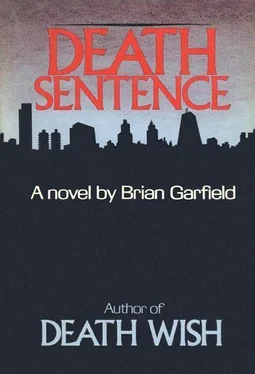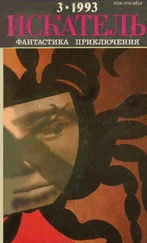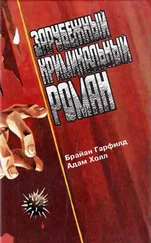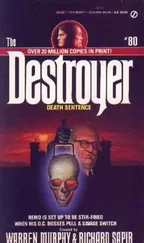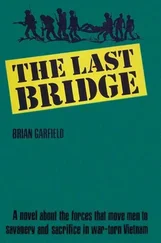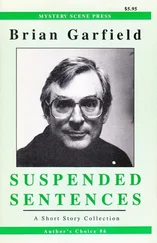At the other end of the investigation it was possible they’d canvass arms dealers; there might be ten thousand .38 Centennials in the Chicago area but there was the remote possibility they’d question Truett in the Wisconsin gun shop and find out that Robert Neuser had bought the two pistols there. They’d start hunting for Neuser then. They’d find him listed in an office on Grand Avenue and they’d search the office, and they’d find the guns.
But they wouldn’t connect Neuser with Paul. He must never leave a single fingerprint in the office or indeed anywhere in the building.
Or on the guns.
He cleaned both of them, oiled them and wiped them down. He wiped the cleaning kit as well; then put kit and both guns in the bottom drawer of the filing cabinet. It had no lock and there was always the chance a burglar would break into the place and steal the guns but if that happened it would do Paul no real harm; it might even provide a red herring for the police to chase, if the burglar used the stolen guns.
In any case he could always buy another gun.
When he returned to the street it was dark and the rush-hour traffic was diminishing. He got his car out of the parking garage and turned north toward Irene’s apartment.
¶ Chicago, Jan. 3rd— A twelve-year-old boy shot and wounded his sixth-grade teacher yesterday when she scolded him for classroom misbehavior, Chicago police reported.
¶ Chicago, Jan. 3Rd— When a robber with his hand in his coat pocket threatened to shoot a CTA bus driver if the farebox wasn’t handed over, the bus driver shot him.
The robber proved to be unarmed.
The robber carried no identification. He died at County Hospital without regaining consciousness after emergency surgery.
“He said he had a gun in his pocket,” said the driver, James Sweet, 31, of 3108 W. Beach. “I didn’t aim to be another dead robbery victim.”
CTA regulations prohibit transit employees from carrying guns. “But I’d rather be fired and alive than employed and dead,” Sweet said. “As far as I was concerned it was my life or my job.”
Sweet said he had been carrying the gun since he first heard about the vigilante.
The robber boarded Sweet’s Number 46 bus on Western Avenue near Addison and began to threaten Sweet as soon as the doors closed, Sweet said. There were no other passengers on the bus. Sweet immediately activated the secret distress signal which has been installed on all CTA buses, but no police responded immediately to the alarm.
“He gave me no choice,” Sweet said. “I don’t carry a key to the farebox. I couldn’t hand it over. And even if I could, why should I?”
Sweet has been a bus driver for seven years. “It’s been getting worse and worse,” he said. “Drivers get knocked over nearly every day now.”
The robber, described as being in his early twenties, is being investigated through fingerprint identification.
A CTA spokesman said Sweet would not be suspended or dismissed immediately; a decision is forthcoming, he said, pending departmental investigation.
No criminal charges have been brought.
Cook County Juvenile Court was housed in a long flat dark building, square and stylelessly modern; it was five stories high and might have been a factory or a company headquarters, or a leprosarium. It fronted on the point of an acutely triangular block, bias-cut by the diagonal slash of Ogden Avenue.
Ogden’s Route 66 truck traffic rumbled past steadily. Paul turned out of the stream and parked on Hamilton Avenue opposite the side entrance of the Juvenile Court.
The sky had thickened and gone pewter. Snow that had fallen in December remained in the park and on the curbs; there had been no thaw. At intervals while he waited he started the engine and ran up the heater until the interior of the car grew uncomfortably hot; then he sat in stillness while the cold pried its way through the sealed windows.
He had the newspapers on the seat beside him; he went through them, turning the pages without hurry, keeping one eye on the court building. The car radio oozed wallpaper music as viscous as syrup but he didn’t bother to change the station; it kept him company without calling attention to itself and he had distractions enough: he kept thinking of Irene.
He’d made a few unusual preparations. He’d smeared the car’s license plates, front and back, with oil and dirt to render them unreadable. He’d bought a winter hat, a Russian sort of thing with earflaps; when pulled down tight it covered everything above his eyes and behind his ears. He’d bought an oversize pair of sunglasses — the mirrored ones, motorcycle goggle-style. And he’d pasted to his upper lip a bushy mustache from a theatrical supply shop. It had occurred to him that if he were to stalk them in daylight he must run the risk of being seen. That was all right but he wanted them to remember the hat, the goggles and the mustache.
The goggles and hat rested on the seat under the newspapers. The flat little .25 automatic was in his hip pocket; the .38 Centennial was clipped under the car seat where he could reach it fast.
A patrol car crunched past and stopped at the courthouse door. A cop and a man in a business suit escorted two youths from the cruiser into the building; the cop returned in a few moments and drove away. Paul looked at his watch: 9:45.
A number of people drifted into the building in the course of the next quarter hour. Paul watched them with distracted mild interest; his mind was on Irene. He kept picturing her laugh, the way her hips moved when she walked, the characteristic glint of secret amusement behind her long eyes.
She was the woman he would love if he could afford to love.
He watched people come and go; then around half past ten he saw two sullen boys emerge from the building and trail reluctantly after a very fat weary woman. Probably she was their mother: probably they had been released in her custody: they were small, likely no older than thirteen and fourteen, but they had the atavistic faces of children to whom brutality was the only reality.
The three of them waited on Ogden for the bus and when they boarded it Paul followed, switching the radio off, fitting hat and goggles to his head.
They transferred to a south bound bus on Ashland and he shadowed it into the ghetto; he was two blocks behind the bus when mother and boys left it and picked their way through the snow into a side street.
A small tenement absorbed them and Paul sat in the car for an hour waiting for the children to come out. But when they emerged they only joined three other boys and the five of them went along to a small park. One of the boys was dragging a sheet of hard green plastic with an upcurved end — a sled. They had snowball fights and dragged the sled to the top of a diminutive hill and pummeled one another for the right to ride it; in the end three piled on the sled and tobogganed crazily down the slope, the sled tipping, two of them flying free and sledding to the bottom on the rumps of their trousers.
Angry with himself for his misjudgment Paul put the car in gear and went away.
He lunched cheerlessly on a hamburger which only put him wishfully in mind of Irene: her cooking was unpretentious but he’d rediscovered the fact that the most important pleasure in a meal was the sharing of it.
By one o’clock he was back on station at the curb, posting watch on the Juvenile Court. He was here because he couldn’t very well return to the adult Criminal Court; if Paul visited that court again and his visit was followed by a vigilante incident involving a felon whom the court had turned loose on bail, Irene would see the connection.
If a fourteen-year-old committed rape and murder the worst punishment he could receive was eighteen months in a training school and that usually meant seven or eight months because they were turned loose early on account of the overcrowding in the institutions. Perhaps the leniency of the juvenile laws had been justified in the days when the laws had been written: children then had been merely children. But the children of the streets had degenerated to vile savagery. Juvenile dockets were heavy with mutilations and murders, rapes, brutal vandalizings of human beings. The only purpose the law served was to reassure them they could commit bestialities without fear of punishment.
Читать дальше
